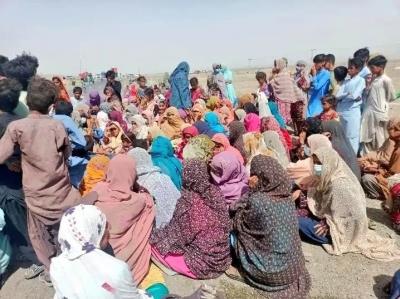Pakistan Needs Firmer Laws To Tackle Growing Gender-Based Violence: Report
Pakistan Senate in July amended the Pakistan Penal Code by caveat-free revision of an otherwise strong law protecting women against acts of violence in public. In the past, this section made assaulting a woman, removing her clothes and laying them bare to be a criminal offence punishable by death or life imprisonment along with a fine, Tahreema Afraz wrote in an opinion piece for The News International.
Section 354-A has been amended by the new amendment to the Criminal Law (Amendment) Act 2025, where the death penalty has been removed and under the updated law, the punishment is life imprisonment or a stringent jail term of 25 years or less.
"The big question for many people is: will this amendment water down the already weakened system of justice for victims of gender-based violence in Pakistan? The symbolism of the death penalty in 354-A was important in a country where few were convicted, most investigations were suspect and victims regularly ran the risk of threat and social pressure even when the death penalty was not applied," the lawyer opined.
Although Section 354-A is not one of the most commonly used sections of the Pakistani Penal Code, it has been instrumental in getting key cases. The records of violence against women in Pakistan back the severity of the topic. "The effectiveness, or at least the appearance of effectiveness, of the law becomes a necessary ingredient in such a situation. Technically, legal deterrence does not necessarily stop crime, but it defines the moral limit affecting what society is prepared to accept," wrote Afraz.
"There is no corresponding change in the ways of investigation, the work of judges, and care of victims, or the reform of the 354-A, accompanied by the removal of the death penalty. This is what makes many oppositionists concerned that the law has been alleviated, while the state undertook no specific measure to eradicate the underlying, more structural problems in dealing with gender-based violence. The amendment might seem to favour trade partners and international allies around the world, but it sends the wrong message to victims who are already reluctant to report," she added.
It is apparent that reforming one part of the law without bolstering the whole system is hardly a significant move forward. The Section 354-A sent out a message that there will be zero tolerance towards public humiliation of a gendered nature.
"Pakistan is not only in need of amendments; it requires a fundamental reconsideration of the application of the law, the treatment of women within the system of law and the degree to which the state fulfils its duty. Until then, the discussion regarding Section 354-A will not be just a legal one; it will still be a personal one for the millions of women who move through the streets of this country and hope that they will not be disgraced and assaulted," Tahreema Afraz detailed in her piece for the News International.

Legal Disclaimer:
MENAFN provides the
information “as is” without warranty of any kind. We do not accept
any responsibility or liability for the accuracy, content, images,
videos, licenses, completeness, legality, or reliability of the information
contained in this article. If you have any complaints or copyright
issues related to this article, kindly contact the provider above.
Most popular stories
Market Research

- Japan Buy Now Pay Later Market Size To Surpass USD 145.5 Billion By 2033 CAGR Of 22.23%
- BTCC Summer Festival 2025 Unites Japan's Web3 Community
- GCL Subsidiary, 2Game Digital, Partners With Kucoin Pay To Accept Secure Crypto Payments In Real Time
- Smart Indoor Gardens Market Growth: Size, Trends, And Forecast 20252033
- Nutritional Bar Market Size To Expand At A CAGR Of 3.5% During 2025-2033
- Pluscapital Advisor Empowers Traders To Master Global Markets Around The Clock






















Comments
No comment